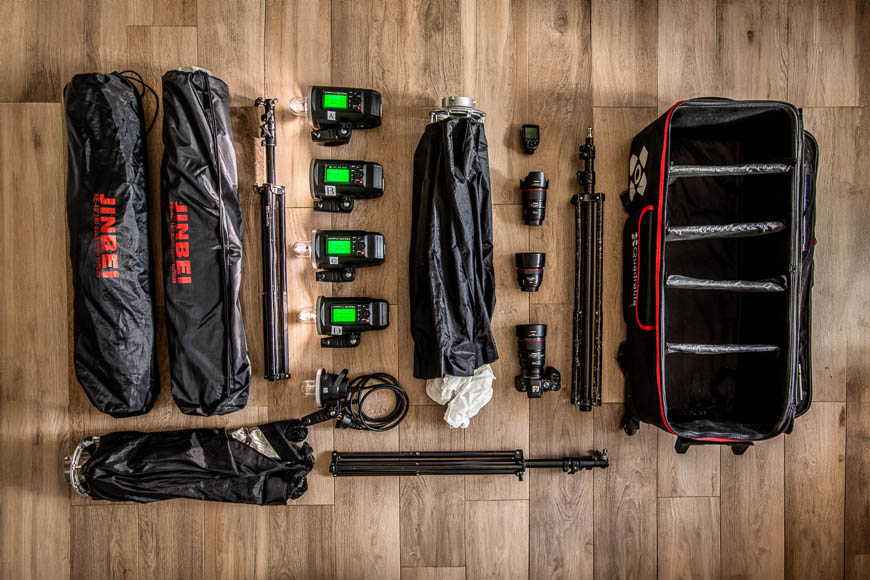
My name is Michał Lis and I am a fitness and portrait photographer based in Wrocław, Poland.
I started a photography business eleven years ago, but my interest in photography developed in high school.
My first camera was the Canon Powershot A75, and since then, I’ve become a Canon loyal customer.
I started as a family and wedding photographer, but after the pandemic, I chose to focus on portrait and fitness photography.
I got into fitness photography through one of my groom’s friends, who is a personal trainer. He asked me for a portrait shoot that he could use for his business, and it went from there.
I mainly shoot at gyms for individual clients who work out and need photos to show off the results of their training or for personal trainers
My first professional Camera was a Canon EOS 5D, which was succeeded by the Canon EOS 5D MK II and Canon EOS 6D. After that I bought Canon EOS 5D MK IV and worked with it for a longer while.
I found a great deal on a Canon EOS R6, last year, and it has been my main camera since then.
My search for a perfect camera was motivated by Canon’s once-famous autofocus issues. The AF problems were somewhat mitigated with the Live View dual-pixel AF found in the Canon EOS 5D MK IV, but the Canon EOS R6 Eye-AF is just what I have wanted for all these years.
I picked it over the Canon EOS R5 since I usually don’t need the forty-five-megapixel resolution, and if I do, I still own the thirty-megapixel Canon 5D Mark IV, which is plenty.
The Canon EOS R6 was a smooth transition. With an EF-RF adapter, I can still use all of my DSLR glass, and it works like a charm.
For now, I don’t own any RF glass. I still use EF lenses via an adapter.
Canon EF 85mm f/1.4 L IS – is a classic portrait lens which is a bit underrated but still cheaper than Canon RF 85mm f/1.2 and almost as sharp. I use this mainly for fitness and portrait photography.
I supplement the Canon RF 85mm f/1.2 with Canon EF 50mm f/1.2 L and Canon EF 35mm 1.4 II L. I use them when the gym space is tight or if I want to show more of the environment.
In fitness photography, you need to shape the light as best as you can to show off those muscles. That is why I use the Godox AD600 portable strobe lights.
I chose them because they are battery-powered and boast 600WS, which is plenty for when you want to cut off all the ambient light and create a mood.
They are also very reliable and well-priced. I trigger them with Godox Xpro II Trigger, which enables me to control the power output for each individual light.
In the past, I used classic studio strobes with power cords, which were usually troublesome and sometimes restricted strobe placement.
I usually use a 120cm Jinbei Octabox mounted on a boom stand as my main light.
I went with the Chinese Jinbei brand as I liked their quick-to-open umbrella-type softboxes – quick to set up and tear down. For my rim lights, I use two 180x40cm Stripboxes and 90x60cm Softbox for uplighting
My main camera bag is the LowePro Protactic 450AW. It holds all of my camera gear and a laptop.
For my lighting setup, I use a Quaralite Move roller bag (basically a GODOX/JINBEI rebrand available in Poland), but honestly, I can’t recommend that. I should have gone with either a Thinktank or Manfrotto with rollers.
The bag I am using is just not sturdy enough. Sadly, the bottom feet broke off, and the straps came off partially. I will need to replace it once it falls apart one day.
I use Adobe Lightroom and Adobe Photoshop combo. Over the years, I developed my own presets, and honestly, I’ve never felt the need to buy third-party presets.
I once had a client who came for a fitness shot, but once he took his shirt off, you couldn’t tell where his muscles were. Apparently, he expected me to create the muscles with light!
I had to explain that it is not how it works, and we ended the shoot with some classic portraits.
Since then, I have communicated upfront what is needed for a successful fitness session and that ninety percent of what you see in the pictures is what you can see in reality.
Credit : Source Post



